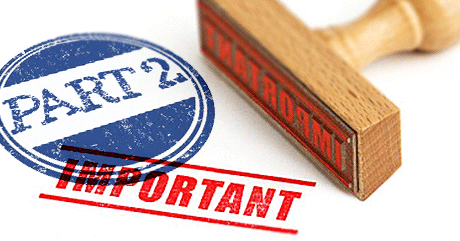Why is S. 967 So Important to the Ambulance Industry? Part II
S.967- Part II
Last week, we opened this space with the first of four blog posts dedicated to helping us all understand the importance of Senate Bill 967 entitled the “Medicare Ambulance Access, Fraud Prevention and Reform Act of 2017.”
 In that opening post, we explained that the bill addresses four areas to benefit EMS in America.
In that opening post, we explained that the bill addresses four areas to benefit EMS in America.
- Reform to the Medicare ambulance fee schedule
- Prior Authorization for ambulance transports of ESRD beneficiaries
- Requiring providers of services and ambulance service providers to submit cost data and other information with respect to ambulance services
- Treatment of ambulance service providers
- In week one we focused on how the bill proposes to permanently incorporate the add-on bonus payments to the Medicare ambulance fee schedule.
This week, we take a look at the next part- Prior authorization for ambulance transports of ESRD beneficiaries.
Dialysis Transports
We have learned over the last few years that there are some bad apples spoiling the entire barrel. We are referring to unscrupulous EMS agencies who took advantage of a good thing and either intentionally unintentionally taxed the Medicare system while billing for transportation End Stage Renal Disease (ESRD) patients.
We all know that every EMS agency covets six individual, billable, transport trip legs per week (dialysis 3x per week, one transport to dialysis and another transport returning from dialysis.) Everyone sees dollar signs as those types of transports equal a reliable, steady revenue stream.
However, too many ambulance administrators saw too much of a good thing. Many tried to become creative and well, check the news archives, billed Medicare for transports that weren’t medically necessary.
So, the Feds had no recourse but to crack down.
First, they cut the payments for ambulance transports of ESRD patients by 10% and then went one step further and clamped down by placing a moratorium on the credentialing of new non-emergency ambulance suppliers in certain geographical areas where things had gotten out of hand.
Plus, the Centers for Medicare and Medicaid Services (CMS) begin experimenting with a pre-authorization program to pre-approve these trips for payments and it worked- the numbers have started going the other way – instead of increasing, they are now decreasing.
Add to that increased audit activity to sniff out the fraud.
S.967 will…
S.967 will place a prior authorization process in play. The proposal calls for all ESRD ambulance services (trips to and from dialysis facilities) furnished on or after January 1, 2019 to be approved in advance of the EMS agency’s providing the service.
Payment will be denied by the Medicare Administrative Contracts (MACs) if the prior authorization review determines that the patient can be safely transported by other means without harm or detriment to the health and welfare of the patient.
The process will require the EMS agency submitting the request for prior authorization to produce the following…
- A valid physician certification statement (PCS) for non-emergency ambulance transport and
- Any other documentation determined appropriate
In its current form, the measure requires the following of the MAC…
- Response (approval or denial) within 7 business days of receiving the request
- Evaluate the patient’s medical necessity by determining…
- Whether the individual meets the bed bound criteria previously established by CMS
- Whether the individual has a medical condition that, regardless of bed confinement, is such that transport by ambulance is medically necessary; or…
- Whether the individual meets other criteria as determined appropriate by CMS and the MAC (labeled in the bill as “the Secretary”)
If approved, a prior authorization will be issued that is retroactive to the date that the request was received from the EMS agency, making the request and will be valid for a 60-day period (with possible extension when determined necessary by the approving body.)
Important Why?
A crackdown was inevitable.
While none of us want to jump through another set of hoops, it is important for us, as an industry, to recognize that we will never garner the respect of the rest of the healthcare circle unless we help to police our own ranks.
If you are demanding excellence in your EMS agency and following the rules, then you’ll appropriately submit a request and, in theory, it should be approved for prior authorization. If you are attempting to skirt the rules and make money which drains the system where money is most needed- then shame on you. Your transports that do not meet medical necessity guidelines should be denied and rightfully so.
Again, this entire bill is a big win for EMS in America. While some parts may be like bitter medicine and somewhat hard to swallow, overall this elevates our position in not only the eyes of lawmakers, but the public as well.
Get out and advocate for its passage today!
